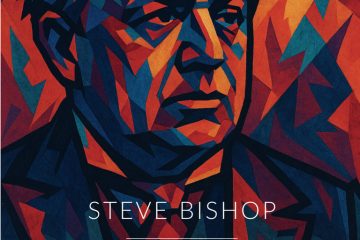George Washington Carver was born in about 1864. He is perhaps best known as the “peanut man” because he discovered over 260 uses for the humble peanut. His innovations in agricultural science, crop rotation and soil enrichment techniques, revolutionised agriculture and helped many Afro-American farmers rise out of poverty. Carver was a huge blessing to many impoverished farmers.
Carver was born into slavery but after his mother was kidnapped, he was brought up by his ‘owner’ Moses Carver. He was taught the Bible and soon found faith in Jesus. He enjoyed teaching Scripture at the Sunday school in his church. He also showed great aptitude for art, geology, and botany. Through a great deal of struggle and hardship he managed to work his way through school. His teachers noted his exceptional intellectual gifts.
Despite prejudice and discrimination because of his skin colour, he eventually graduated from Iowa State College with a Bachelor of Science degree. He was the first African-American to do so. At Iowa his work focused on mycology—the study of fungi—where he identified over 20,000 different species.
He found a post at Tuskegee Institute, Alabama and he taught there until he retired. Carver excelled at teaching and research, but administration was not his forte. At Tuskegee he was moved by the grinding poverty of the subsistence farmers. Many of the farmers relied solely on one single crop – cotton. Carver soon discovered that this single crop philosophy was depleting the soil. He encouraged the farmers to diversify and to grow sweet potatoes and peanuts. Both crops were easy to grow and enriched the soil thus fixing the problem. He argued that the sweet potato and peanuts were twins. He wrote:
“They are two of the greatest products that God has ever given us. They can be made into a perfectly balanced rations. If all of the other foodstuffs were destroyed—that is vegetable foodstuffs were destroyed—a perfectly balanced ration with all of the nutriment in it could be made with the sweet potato and the peanut.”
He spent a lot of time meeting farmers and teaching them good farming techniques such as fertilisation and crop rotation. Carver was passionate about using fruitful scientific insights to improve the lives of impoverished farmers. However, the farmers were soon complaining that they had more peanuts than they could sell. He admonished them with biblical wisdom:
“There is no such thing as waste in God’s world. Every part of the peanut has a use, it’s up to us to discover it.”
This prompted him to discover hundreds of uses for peanuts and sweet potatoes. He unleashed the rich potential of the peanut in tune with God’s creation mandate.
In order to help agriculturalists he produced accessible “Experiment Station Bulletins”. These introduced farmers to topics such as how acorns can feed animals, how to cook cow peas, the pickling and curing of meat and how to preserve vegetables. He taught them how to live comfortably in winter and how wild vegetables could be found for food. These cut-diamond insights were such a blessing to so many farmers.
He became aware that he wasn’t reaching the poorest farmers who were illiterate; the legacy of slavery that he understood all too well. Carver went to these needy and vulnerable people to provide practical demonstrations using a “Jesup wagon” (a mobile classroom and laboratory). What a powerful way to follow Jesus in loving his neighbour in such a practical way.
Carver had a profound impact on agricultural education and outreach programs. His methods transformed the livelihoods of countless families, fostering economic self-sufficiency in rural communities.
Despite living in an era of segregation, Carver never allowed racism and prejudice to crush him and sideline his mission to disciple the poor and needy with life-giving insights and knowledge. He had the ear of government officials, including U.S. presidents and the famous mogul, Henry Ford but tragically he was not allowed to dine with white colleagues. He faced such injustices with humility and patience in a very challenging social milieu.
Though he was not directly involved in the Civil Rights Movement, his life and work were deeply intertwined with the fight for racial equality. His success, despite facing racial prejudice at every turn, served as a powerful symbol of African-American potential and excellence. Carver’s example was an embodiment of dignity, perseverance, and the importance of Christian education in the struggle for equality.
In 1921 he addressed the U.S. House Ways and Means Committee in Washington DC. What was meant to be a ten-minute presentation turned into a fascinating hour and forty-five-minute session. He waxed lyrical as he outlined the many uses of the peanut. At the end of his address the chairman asked:
Dr. Carver, how did you learn all these things?
Carver answered
“From an old book”
“What book?” asked the Chairman.
Carver replied, “The Bible.”
The Chairman inquired, “Does the Bible tell us about peanuts?”
“No, Sir” Dr. Carver replied, “But it tells about the God who made the peanut. I asked Him to show me what to do with the peanut, and He did.”
Carter had a deep understanding of the cultural mandate. He unfolded peanut potential in order to bring good news to the poor (Luke 4:18). He credited all his “admirable characteristics accomplishments to God”. He believed that his scientific discoveries “were a product of divine revelation.” He wrote very insightfully:
“I didn’t make these discoveries. God worked through me to reveal to his children some of his wonderful providence.”
His vision of sustainable agriculture, commitment to education, and belief in the harmony between science and faith continues to inspire many today. He found uses for peanuts and sweet potatoes in products as diverse as shampoo, shaving cream, breakfast foods, medicine, and even industrial items like paper and ink. He demonstrated the profound potential of scientific inquiry to bless countless poor, vulnerable Afro-American farmers. As a committed Christian he saw the potential within God’s creation and was able, as a scientist, to unfold and develop the creation in so many fruitful ways.
George Washington Carver died in 1943 at the age of 78 after a bad fall down a flight of stairs.
Thanks to Steve Bishop for this story and a lot of the writing.
- UCB Interview with Vicky Gibbens - January 28, 2026
- The Story of Fred Lemon who met Jesus and Two Angels in Prison - November 26, 2025
- The Inspiring Story of Abraham Kuyper (1837-1920) - October 22, 2025



1 Comment
James Skillen · April 30, 2025 at 3:18 pm
Thanks very much Mark and Steve for this touching story. Doreen and I now live in Alabama and have visited the museum about Carver and the Tuskegee Institute, which are now incorporated into the Tuskegee University. In fact, we have taken visiting friends to see it—about 2 hours southeast of Birmingham. Also, very close to the university is the museum and airport where the Tuskegee airmen flew and eventually became famous in World War II, despite every effort on the part of the military to keep them segregated from the “real” (white) airmen. You might have seen one of the movies about them and heard of Eleanor Roosevelt’s decision to visit them and fly in a plane with one of the teams.
Although your story stands well by itself and is a great testimony to “all of life redeemed,” there is a prelude that is highly significant. Booker T. Washington, born in 1856, had a similar life story to Carver’s in the sense of being born into slavery and not allowed to learn to read. But his master’s wife recognized his desire to learn and made it possible for him to go to school for an hour each day. He taught himself to read while working in a salt mine and read everything he could to keep learning. He had a deep compassion for illiterate fellow slaves and then for former slaves after the Civil War who became subsistence farmers. In 1872, he walked hundreds of miles to get to an agricultural institute to continue his learning. Having won a scholarship there, he graduated from it in 1875. In the early 1880s he was invited to come to run/direct the newly founded Tuskegee Normal and Industrial Institute. He proved to be not only a passionate teacher but also a skilled administrator and fundraiser and built the institute into a successful operation. He was on the constant search for the rare black (negro) teacher who could help the institute do more and better. He heard about George Washington Carver in Iowa and begged him to come to Tuskegee. Carver was reluctant, but it was his own heart for poor people and farmers, which you describe, that finally led him to join Booker T. at Tuskegee. Washington died in 1915; Carver lived until 1943. The approach they took with their Tuskegee programs was considered “gradualist,” believing that blacks needed to prove their worth” in the white world. They met with opposition from W.E.B. Du Bois and liberal whites who wanted more immediate progress by means of more confrontational methods.
Comments are closed.